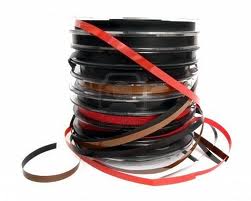Like most other languages, Dieri can be spoken quickly in ordinary conversation, or more slowly, such as when speaking to someone who does not know the language or understand it very well. For people who want to learn a language it is often good to start with slower expressions and then build up to being able to use faster speech. Often in faster speech words get squashed together or some parts get left out, and these can be more clearly heard in slower speech.
The tapes recorded by Luise Hercus and Alec Edwards in 1971-1972 are very useful because when Luise asks how to translate something from English to Dieri Alec first says it at quickly as in ordinary conversation and then repeats the sentence slowly for Luise who is the language learner and he is the language teacher.
Here are some examples. First, we have the sentence nganhi yathalha nganayi thanangu ‘I will speak to them’, which Alec says as:
Notice that yathalha ‘speak’ and nganayi ‘will’ sound squashed together. He then repeats this slowly so the words are clearer:
Here is another example. Luise asks Alec to translate ‘Don’t make a noise!’ and he gives the Dieri sentence as wata mirtya nganka and then repeats this twice, more slowly each time:
Finally, we have the command ‘Listen to me!’ which Alec translates as nganha ngara and then repeats with the slower form nganha ngaramayi (we discussed the forms and uses of commands in this blog post).
We are fortunate that Alec gave both the faster and slower ways of speaking when he was teaching Luise how to speak Dieri.
Note: the title of this post is pinarru nhawuya yarka yatharna wanthiyi meaning ‘That is how this old man talked’. It is made up of:
pinarru ‘old man’
nhawuya ‘this’ (comprised of nhawu ‘he, this’ and the ending -ya ‘near the speaker’)
yaruka ‘like that’ (comprised of the base yaru ‘like that’ and the ending -ka ‘particular’)
yatharna ‘speak’
wanthiyi ‘did long ago’













